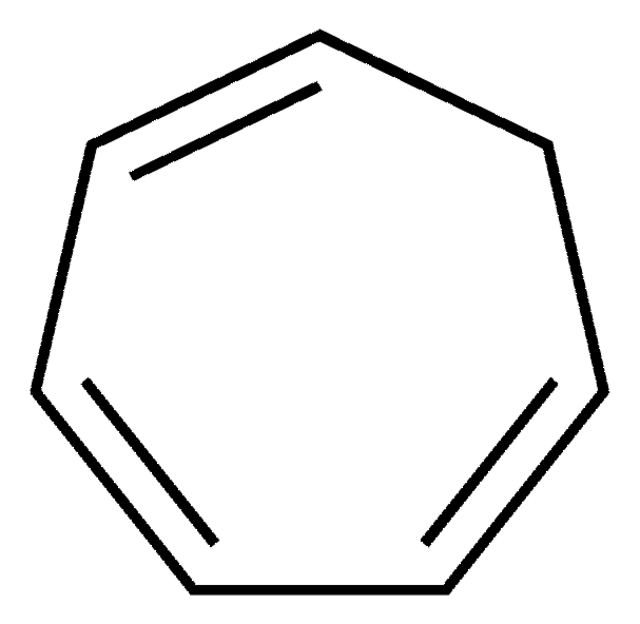123447
3,4-Dihydroxy-3-cyclobutene-1,2-dione
≥99.0% (HPLC)
Synonym(s):
Squaric acid
About This Item
Recommended Products
Quality Level
Assay
≥99.0% (HPLC)
form
solid
mp
>300 °C (lit.)
SMILES string
OC1=C(O)C(=O)C1=O
InChI
1S/C4H2O4/c5-1-2(6)4(8)3(1)7/h5-6H
InChI key
PWEBUXCTKOWPCW-UHFFFAOYSA-N
Looking for similar products? Visit Product Comparison Guide
Related Categories
General description
Application
- In fluorescence detection in immunoassays, hybridization assays, enzymatic reactions, and other analytical procedures.
- To form diffraction quality crystals.
- To synthesize a squarate dianion, which is used as a building block to create uncharged polymeric networks. These ordered structures are used in catalysis, nonlinear optics, electrical conductivity, molecular recognition, and molecular sieves.
Signal Word
Danger
Hazard Statements
Precautionary Statements
Hazard Classifications
Eye Dam. 1 - Skin Corr. 1B
Storage Class Code
8A - Combustible corrosive hazardous materials
WGK
WGK 3
Flash Point(F)
374.0 °F
Flash Point(C)
190 °C
Personal Protective Equipment
Choose from one of the most recent versions:
Already Own This Product?
Find documentation for the products that you have recently purchased in the Document Library.
Articles
Professor Chen (Nankai University, China) and his team explain the strategies behind their recent record-breaking organic solar cells, reaching a power conversion efficiency of 17.3%.
Our team of scientists has experience in all areas of research including Life Science, Material Science, Chemical Synthesis, Chromatography, Analytical and many others.
Contact Technical Service
